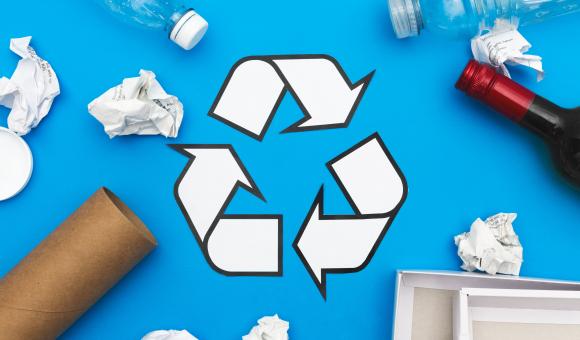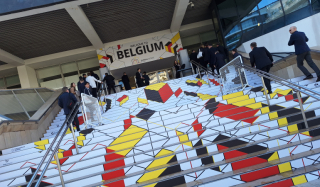
"How can we introduce a permanent circular economy into Wallonia ?" - this question was the focus of five parliamentarians (Marie-Dominique Simonet (cdH), Christie Morreale (PS), Tom Evrard (MR), Philippe Henry (Ecolo) and André-Pierre Puget (UDD) for more than 10 months.
In their report, which is more than 180 pages long, the parliamentarians decided to make recommendations to the next political coalition that will govern Wallonia for the next five years. After many site visits and consultations with the players in the sector, particularly in partnership with the King Baudouin Foundation, and in view of the current climate emergency, the five party representatives advised the next government to create a ministry for the circular economy. "The will to develop circular economy goals for Wallonia requires the mobilisation of all ministerial competencies and a ministry responsible for the cross-functional coordination of the circular economy.”
According to a study by Agoria and Sirris (quoted in the report), the Belgian economy is due to create 36,000 jobs by 2020. Furthermore, thanks to circular development, it could reduce CO2 emissions by 50% and the consumption of primary resources by 30% by 2030. However, specialists believe that "for a business, the transformation from a linear model into a circular model takes between five and seven years, from the first deliberations to their implementation,” yet Wallonia is home to several businesses which already use this type of economy. For example, the Comet group, which is perceived as an economic lever, transforms car frames into fuel. The report also states that "this model is an economic opportunity to reindustrialise Wallonia by promoting additional growth of 1.04%.”
The report stresses that in 2040, at least 80% of the products (per sector) sold on the Walloon market must be repairable or recyclable. To achieve this objective, the deputies suggested the following, for example: the introduction of ongoing training in the circular economy for executives, the creation of a circular label and a restriction on products incompatible with circular economy principles, by discouraging, or even banning, the marketing of non-recyclable products. They also recommended the introduction of meetings between the public authorities and the stakeholders of the sectors involved, in order to develop a coordinated regional strategy, and called for the conclusion of "green deals" that set out precise commitments. Before the end of its term of office, the Walloon Parliament will vote on this report, which will now be the subject of a draft resolution. "The aim is to approve this resolution before the elections, so that concrete actions can be taken during the next term of office,” concluded the five parliamentarians.
Source : L'Echo - Le Vif







